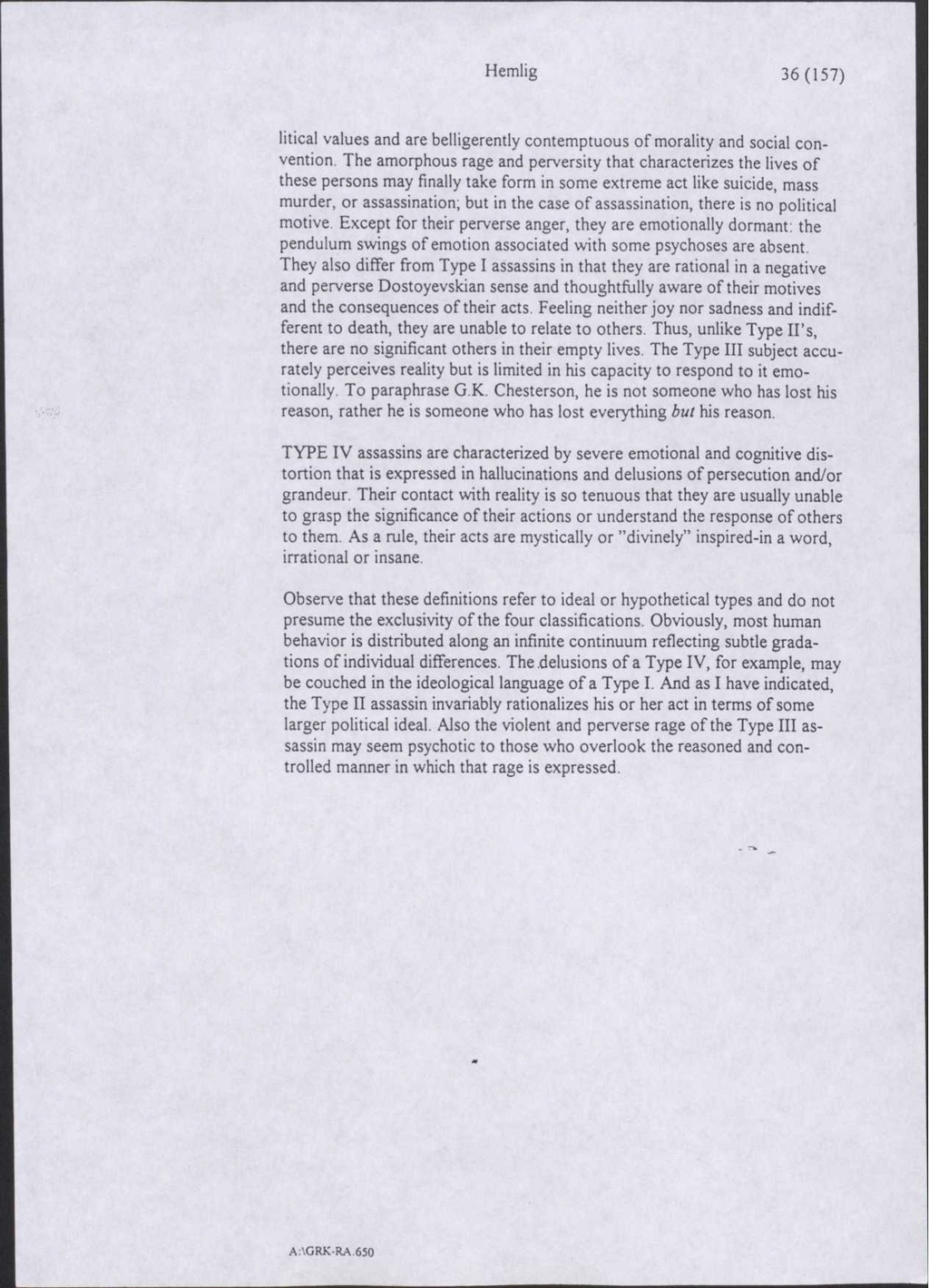litical values and are belligerently contemptuous of morality and social convention. The amorphous rage and perversity that characterizes the lives of these persons may finally take form in some extreme act like suicide, mass murder, or assassination, but in the case of assassination, there is no political motive. Except for their perverse anger, they are emotionally dormant: the pendulum swings of emotion associated with some psychoses are absent. They also differ from Type I assassins in that they are rational in a negative and perverse Dostoyevskian sense and thoughtfully aware of their motives and the consequences of their acts. Feeling neither joy nor sadness and indifferent to death, they are unable to relate to others. Thus, unlike Type II's, there are no significant others in their empty lives. The Type III subject accurately perceives reality but is limited in his capacity to respond to it emotionally. To paraphrase G.K. Chesterson, he is not someone who has lost his reason, rather he is someone who has lost everything but his reason. TYPE IV assassins are characterized by severe emotional and cognitive distortion that is expressed in hallucinations and delusions of persecution and/or grandeur. Their contact with reality is so tenuous that they are usually unable to grasp the significance of their actions or understand the response of others to them. As a rule, their acts are mystically or "divinely” inspired-in a word, irrational or insane.
Observe that these definitions refer to ideal or hypothetical types and do not presume the exclusivity of the four classifications. Obviously, most human behavior is distributed along an infinite continuum reflecting subtle gradations of individual differences. The delusions of a Type IV, for example, may be couched in the ideological language of a Type I. And as I have indicated, the Type II assassin invariably rationalizes his or her act in terms of some larger political ideal. Also the violent and perverse rage of the Type III assassin may seem psychotic to those who overlook the reasoned and controlled manner in which that rage is expressed.
